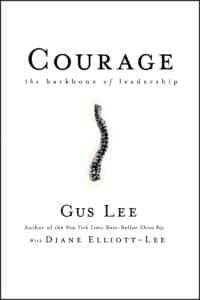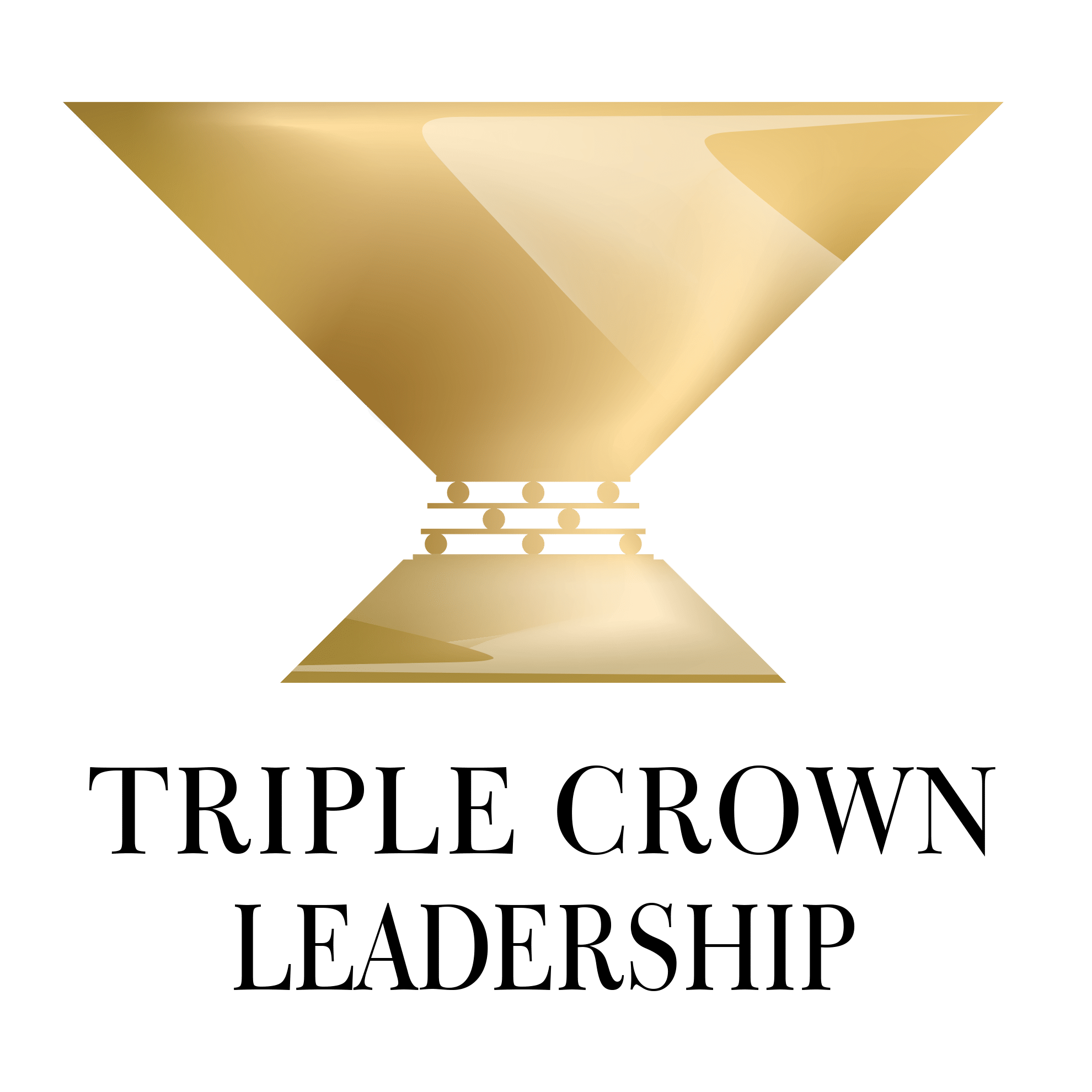You’re sitting in a meeting with your colleagues. They all agree on a course of action you sense is wrong. It’s not illegal, but it certainly doesn’t feel right.
Do you speak up?
You Will Be Tested
No matter what field you work in, you will be tested with ethical challenges or dilemmas. You’ll see something disturbing. Or you’ll be asked or pressured to do something you sense is wrong. Do you speak up and refuse or go along?
Bob had that happen early in his career. He was a new General Manager of a division of a large public company. One of their large distributors called to ask Bob to send their annual rebate of 5 percent of their purchases to a certain organization. Bob took the info and asked his boss about the request.
His boss said this was an annual request, and it’s okay. Bob suspected this was a private kickback to the owners that went into their pockets. What should Bob have done? (Back to that in a minute.)
Examples of Times When a Voice of One Is Needed
All aspects of life come with ethical challenges and dilemmas. Workplaces are no exception. For example, what do you do if you witness the following actions (or plans for them)?
- Assault or bullying
- Breaking or bending the rules
- Bribery or blackmail
- Cheating
- Covering up for violations
- Discrimination and/or favoritism
- Gossip and rumor-spreading
- Harassment
- Improper disclosure of confidential information
- Intellectual property infringement or theft
- Looking the other way while violations are happening
- Lying
- Manipulating people
- Retaliation
- Sabotage of a person, team, or organization
- Stealing
- Taking credit for others’ ideas or work
Chances are that several of these are happening in your organization right now. Many people prefer to look the other way.
“There comes a time when silence is betrayal.”
-Martin Luther King, Jr.
Ideally, you work in an organization that acts ethically (one of the three legs of what we call “triple crown leadership”), with what we call a “culture of character.” (And, if not, you may want to consider making a change.) But even in the best organizations, people make mistakes. Some bad apples can spoil the barrel. The question is this: What will you do about it?
“Speak your mind, even if your voice shakes.”
-Maggie Smith

Leadership Derailers Assessment
Take this assessment to identify what’s inhibiting your leadership effectiveness. It will help you develop self-awareness and identify ways to improve your leadership.
A Voice of One Speaks Up
As we recounted in our book, Triple Crown Leadership, Bob faced a dilemma later in his career as a new co-CEO of a public company that was in a tailspin after legal accusations about the prior CEO bribing officials.
It was time for the first earnings release under the new management. There was huge pressure to make a positive impression on Wall Street.
Bob drafted a press release with a positive spin on their poor financial results that would surely disappoint investors. The press release said nothing inaccurately. It just mentioned all the positives and few of the negatives.
Tom, the General Counsel, objected in a staff meeting. His concern was about perception, not a legal issue. He said, “We can’t say that. I don’t care if I’m a voice of one in this room. We’re in an ethical mess. We have to be squeaky clean.”
“I don’t care if I’m a voice of one in this room.”
He was right. As a “voice of one,” he served as a “steward,” actively stepping outside his position to influence his new boss. Bob paused, thought deeply, realized he had succumbed to the pressure, and changed the press release.
“No one is more valuable to the organization than the subordinate willing to speak truth to power.”
-Warren Bennis, leadership author
They took heat from Wall Street. It took six long years, but they conducted a challenging turnaround ethically.
What we call a “voice of one” is someone who alone calls out the danger of a situation or asks tough questions when everyone else is going along with a questionable course of action. It takes incredible courage.
In our professional lives, most of us don’t have the opportunity to show courage on a battlefield or perform a heroic rescue attempt. The biggest opportunity we have to show courage is when we speak up as a voice of one.
Personal Values: Your Moral Compass
To be prepared to be a voice of one, you must set your moral compass by defining and living by your personal values. (See our Personal Values Exercise.)

Personal Values Exercise
Complete this exercise to identify your personal values. It will help you develop self-awareness, including clarity about what’s most important to you in life and work, and serve as a safe harbor for you to return to when things are tough.
Courage: The Backbone of Leadership

In their excellent book, Courage: The Backbone of Leadership, Gus Lee and Diane Elliott-Lee make the case that “Courage is the single most decisive trait in a leader.”
“Courage is the single most decisive trait in a leader….
Courage is the backbone of leadership.”
-Gus and Diane Elliott-Lee
They write that tests of courage occur at decision points in your life when crises cross paths with your values. Organizations have stated or unstated shared values for how people can behave within the organization.
The Lees identify three categories of organizational values:
- Low values, such as abuse, greed, fear, and backstabbing.
- Middle values, such as teamwork, creativity, education, customer focus, and quality.
- High values, such as integrity, courage, and character
They note that most organizations have “middle values” that are “solid” but not exceptional. For example, consider a fictional drug cartel whose unstated values are the middle values of “teamwork, creativity, education, customer focus, and quality.” The cartel might be excellent at upholding these middle values, but it’s still a gang of criminals.
The Lees contend that organizations must pair middle values with the high values of integrity, courage, and character:
- Integrity requires distinguishing right from wrong and choosing the right path.
- Courage is “the mental and moral strength to venture, persevere, and withstand danger, fear, or difficulty.”
- Character is “sustained integrity and courage.”
These three high values complement each other. In summary, they write:
“Courage is the tip of the spear of integrity and the spark plug for principled conduct.”
-Gus and Diane Elliott-Lee
Bob’s Ethical Education
Remember Bob’s dilemma early in his career about whether to send the 5 percent rebate to the distributor?
Bob sent the rebate but has regretted it ever since. His conscience told him it was wrong. He didn’t summon the courage then to be a voice of one.
For Bob, this mistake was a powerful lesson that helped shape his character. Often, we learn the most from our failures.

Leadership Derailers Assessment
Take this assessment to identify what’s inhibiting your leadership effectiveness. It will help you develop self-awareness and identify ways to improve your leadership.
Examples of a Voice of One in Action

Malala Yousafzai, the young Pakistani activist for female education, is an example of a voice of one. Ten years ago, she (then 15 years old) was shot by a Taliban gunman while on a bus after taking an exam in retaliation for her activism. She was hit in the head with a bullet and in critical condition.
Even afterwards, Taliban officials continued denouncing her, indicating plans for a possible second assassination attempt. After her recovery, she courageously continued her fight for girls’ right to an education.
“I don’t want to be remembered as the girl who was shot. I want to be remembered as the girl who stood up.”
-Malala Yousafzai, Pakistani activist for female education; the youngest Nobel Prize laureate
Whistleblowers are another example. They play an important role, often as a voice of one, in divulging ethical breaches.
This is hard because many people view whistleblowers as traitors—and sometimes retaliate. There’s a stigma here. Think about “tattle tales” and “snitches.” We must reframe whistleblowing as one among many acts of ethical stewardship in an organization.
Conclusion
When you experience ethical challenges, you’ll need to draw on your moral compass, your personal values, and your courage.
We hope you’ll have the courage to be a voice of one.
Reflection Questions
- Have you been a voice of one?
- Does your organization need a voice of one right now?
- If so, what will you do about it?
- When have you shown or seen courage in ethical leadership?
- Do you have any opportunities now to show more courage in ethical leadership, or to build your courage muscles?
Tools for You
- Leadership Derailers Assessment to help you identify what’s inhibiting your leadership effectiveness
- Personal Values Exercise to help you determine and clarify what’s most important to you
- Alignment Scorecard to help you assess your organization’s level of alignment

Leadership Derailers Assessment
Take this assessment to identify what’s inhibiting your leadership effectiveness. It will help you develop self-awareness and identify ways to improve your leadership.
Related Articles
- “Leadership and the Ethics Imperative“
- “Ethical Leaders: What They Do that Others Don’t”
- “Whistleblowers–Reframing Their Role“
- “How to Prioritize Ethics When Leading People”
Postscript: Quotations on Courage and the Voice of One
- “I am the voice of one crying in the wilderness….” -John the Baptist in the Bible, John 1:23
- “Courage is… an acquired set of skills, a practiced competence…. a deep-seated, fundamental human competence that leverages our other abilities. It invokes within us our best selves” -Gus Lee and Diane Elliott-Lee
- “Courage is being scared to death but saddling up anyway.” -John Wayne, actor
- “We were scared, but our fear was not as strong as our courage…. I raise my voice not so that I can shout, but so that those without a voice can be heard.” -Malala Yousafzai
- “One of the most valuable things any of us can do is find a way to say the things that can’t be said.” -Susan Scott, Fierce Conversations
- “Cowardice asks the question ‘Is it safe?’ Consensus asks the question ‘Is it popular?’ But conscience asks, ‘Is it right?’” And there comes a time when one must take a position that is neither safe, nor politic, nor popular… but because conscience tells one it is right.” -Martin Luther King, Jr.
- “Often, the ethical path is the harder one; yet we have brains wired to rationalize behavior that protects us from pain and conflict and from standing out out from the group. Ethical fortitude relies heavily on courage to face adversity and social pressure.” -Bob and Gregg Vanourek, Triple Crown Leadership
- “When eagles are silent, parrots begin to chatter.” -Winston Churchill, British statesman who served as wartime Prime Minister of the United Kingdom


Triple Crown Leadership Newsletter
Join our community. Sign up now and get our monthly inspirations (new articles, announcements, opportunities, resources, and more). Welcome!
+++++++++++++++++++++++
Gregg Vanourek and Bob Vanourek are leadership practitioners, teachers, trainers, and award-winning authors. They are co-authors of Triple Crown Leadership: Building Excellent, Ethical, and Enduring Organizations, a winner of the International Book Awards. Check out their Leadership Derailers Assessment or join their community and sign up for their newsletter. If you found value in this, please forward it to a friend. Every little bit helps!



2 thoughts on “Are You Strong Enough to Be a ‘Voice of One’?”
This is an article I will save and review occasionally! Excellent reduction of principles by which to live, but – expect personal pain and opposition when you do. An inherent trait of humans is their loathing of anyone who tells them they are doing something wrong.
Thanks for your thoughtful response–and warning. I think you’re right. We should steel ourselves for a tough reaction and prepare to face some consequences. Well said, and thanks. -Gregg